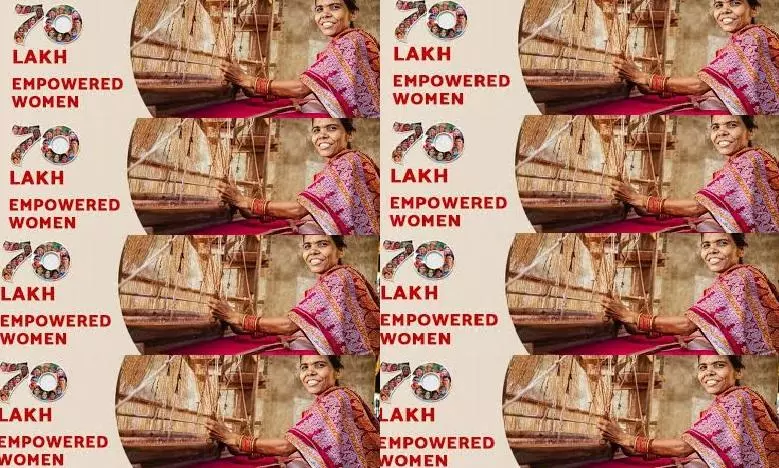How women in Odisha, long used as vote bank by BJD, tilted scales in favour BJP

Bhubaneswar: The Lok Sabha and assembly elections held in Odisha in April and May this year marked a significant shift in the political landscape, especially in terms of how women voters played a crucial role in tilting the scales in favor of the Bharatiya Janata Party (BJP). Historically, women had been a dependable vote bank for the Biju Janata Dal (BJD), led by Naveen Patnaik, thanks to programmes like Mission Shakti which aimed at empowering women economically and politically.
However, the latest elections analysis revealed that women voters, long seen as loyal to BJD, began to exercise their independent political agency by supporting the BJP in large numbers.
BJD’s efforts to engage women began early, with programmes like Mission Shakti launched in 2001, which sought to provide women with financial independence and involvement in Self-Help Groups (SHGs). By extending soft loans and promoting SHGs, the initiative empowered millions of women, making them a force in both rural and urban areas. Over time, these women became politically active, often standing for local elections and serving as BJD party workers. For nearly two decades, this created the impression that the BJD was the party that best represented women’s interests.
While Mission Shakti was hailed for empowering women economically, its deeper political implications raised concerns. Many SHG members, initially seeking self-reliance, found themselves absorbed into the BJD’s political fold, diminishing their autonomy. The broader perception emerged that women were being used as vote banks rather than as truly empowered individuals. BJD’s focus on women’s reservation in parliament and assemblies did little to alleviate these concerns among the growing number of women who began feeling disillusioned with the party’s tactics.
Prime Minister Narendra Modi and the BJP leadership recognised this discontent and addressed women’s concerns head-on. Through direct appeals to women’s sense of empowerment, including the launch of the Subhadra Yojana, which focused on addressing key issues affecting women, the BJP provided a fresh alternative. Modi’s outreach resonated with women voters, who saw in him a leader who not only acknowledged their struggles but offered practical solutions.
The positive shift in women’s political agency was evident in the voter turnout. According to election data, a higher percentage of women (75.55 per cent) than men (73.37 per cent) participated in the 2024 polls, signaling their growing sense of political importance. The increase in voter turnout from 2019 to 2024 further highlights how women were more engaged than ever, actively shaping the political narrative of the state.
“This shift should be seen as a positive development for the democratic process in Odisha. Women voters, who were once viewed as a captive electorate for the BJD, have demonstrated their ability to think independently and choose the political party that aligns with their aspirations. This shift also emphasises that true empowerment comes not just from economic support or political reservation but from the freedom to make informed political choices,” said Pravukalyan Mohapatra, a senior journalist and political commentator.
For the BJP, this represents a major success in its outreach efforts, showing that its focus on women’s issues resonated deeply. For the women of Odisha, the 2024 elections marked the beginning of a new chapter where their voices were no longer taken for granted but instead became a decisive factor in the electoral outcome. This trend reflects a maturing political culture where women are no longer passive participants but active, informed voters shaping the future of the state.
“The 2024 elections in Odisha can be seen as a watershed moment for women's political agency. It underscores the growing importance of women in shaping electoral outcomes and encourages a more inclusive and responsive political discourse. Women, once a reliable vote bank for BJD, have shown that they are capable of shifting allegiances and demanding more from their leaders—a positive sign for democracy in Odisha,” observed Prasanna Mohanty, a political analyst.
